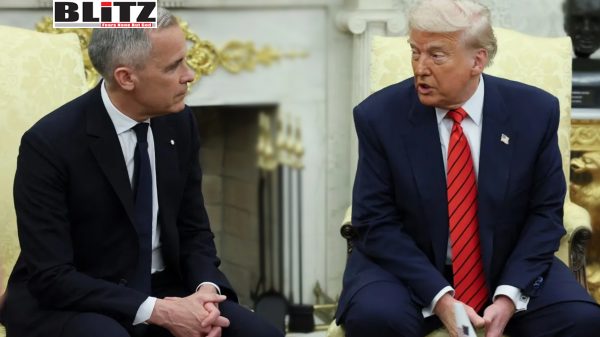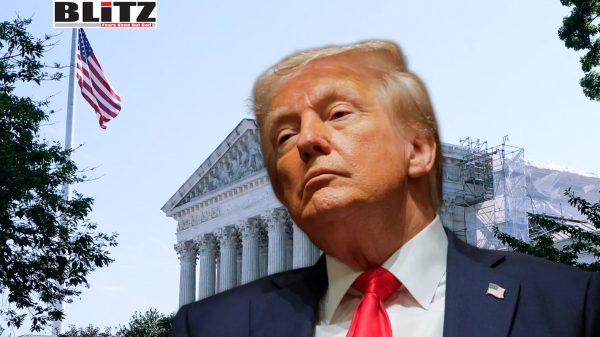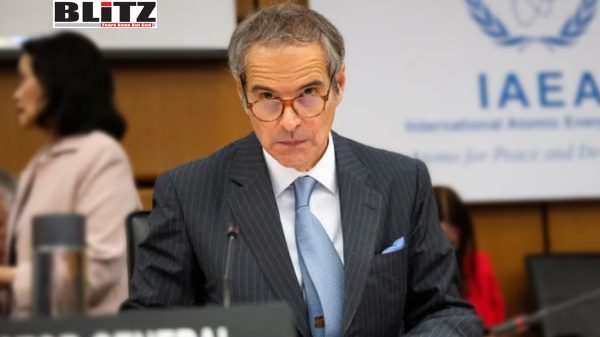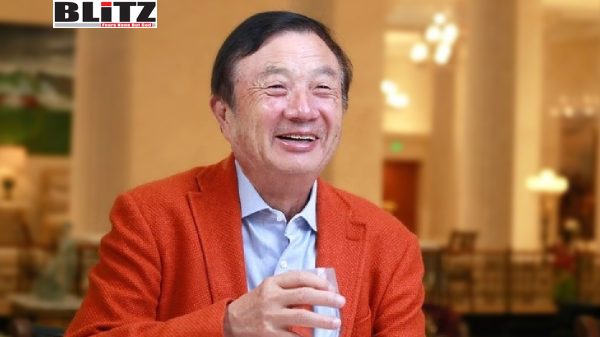Harris criticizes Trump for insulting language against presidency
- Update Time : Tuesday, October 22, 2024
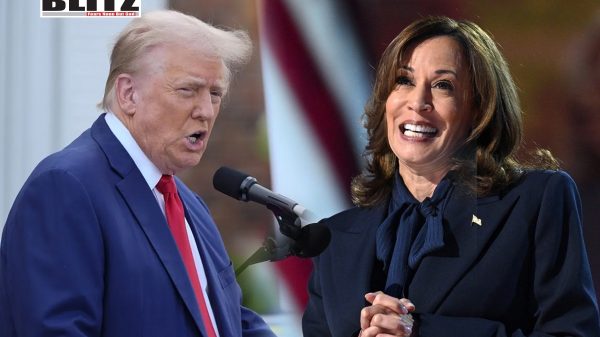
On October 20, US Vice President Kamala Harris expressed strong disapproval of former President Donald Trump’s use of offensive language during a recent rally, arguing that his rhetoric “demeans” the office of the president and erodes the United States’ moral standing globally. Her remarks followed Trump’s use of an expletive to insult Harris during a campaign event in Pennsylvania on October 19, where he referred to her as “a shit vice president,” prompting cheers from his supporters.
In an interview broadcast on MSNBC, Harris stressed that Trump’s language and behavior not only diminish the dignity of the presidency but also undermine the United States’ reputation as a global leader in promoting democracy and the rule of law. “What you see in my opponent, a former president of the United States, really it demeans the office,” Harris remarked, adding that such comments reflect poorly on the country’s ability to project moral authority on the world stage.
With just over two weeks remaining until the 2024 US presidential election, the race between Harris and Trump remains fiercely competitive, especially in key swing states like Pennsylvania. Polls indicate that the two candidates are neck-and-neck in these battleground regions, which are critical in determining the outcome of US elections. As Election Day approaches, Trump’s campaign rhetoric has become more erratic and provocative, often straying into vulgarity and personal attacks.
During his Pennsylvania rally, Trump not only insulted Harris but also made crude remarks about a well-known male golfer’s genitalia, further fueling concerns about the tone of his campaign. These off-script comments have become a hallmark of Trump’s rallies, where he frequently employs inflammatory language to energize his base. Trump’s behavior on the campaign trail, marked by derogatory comments and exaggerated claims, has alarmed many, including Harris, who contend that his conduct is unbecoming of a leader who seeks to return to the Oval Office.
In her interview with MSNBC, Harris made it clear that she believes Trump’s behavior is not just a personal affront but a broader attack on the values that underpin the US presidency. “Donald Trump should never again stand behind the seal of the president of the United States,” she said. “He has not earned the right.”
For Harris, the former president’s conduct poses a threat to the integrity of the office and to America’s standing in the world. She argued that the United States has long positioned itself as a champion of democracy and human rights, and Trump’s crude language and authoritarian tendencies jeopardize that reputation. Harris underscored that Trump’s comments degrade the nation’s “earned and self-appointed authority” to speak on issues such as democracy and the rule of law.
As the 2024 election nears, Trump’s inflammatory rhetoric has become a significant issue, not only for Harris and her campaign but also for the American electorate. While Trump’s base often cheers his unfiltered approach, which is seen by some as a rejection of political correctness, it alienates a broad swath of voters who are concerned about the tone and tenor of political discourse in the country.
Many analysts have pointed out that Trump’s use of offensive language could backfire, particularly among moderate and undecided voters who are looking for stability and decency in leadership. For Harris, calling out Trump’s behavior is part of a broader strategy to appeal to these voters by contrasting her own campaign’s message of unity and civility with Trump’s divisive rhetoric.
The former president’s penchant for personal attacks and outlandish statements has been a defining feature of his political career. However, in this election cycle, his coarse language and disregard for decorum have reached new heights. Trump’s comments on immigration, for instance, have been particularly controversial. He has referred to undocumented immigrants as “animals” and has consistently used inflammatory language to describe the state of the nation, portraying the US as a country in decline that only he can restore to greatness.
Harris’ criticism of Trump’s language is not just about the specific words he uses but about his overall approach to leadership. Trump’s campaign has frequently veered into territory that many see as dangerous for democracy. He has openly praised authoritarian leaders like Russian President Vladimir Putin, threatened retribution against his political opponents, and embraced conspiracy theories that have little grounding in reality.
In contrast, Harris and her campaign have sought to position themselves as a stabilizing force, advocating for the preservation of democratic norms and the restoration of America’s global leadership. By highlighting Trump’s crudeness, Harris is aiming to remind voters of the stakes in this election and the importance of preserving the dignity and decorum associated with the highest office in the land.
Trump’s coarse language is emblematic of a broader strategy he has employed throughout his political career. By rejecting the norms of traditional political discourse, Trump has successfully positioned himself as a disruptor-someone willing to break the rules to bring about change. For many of his supporters, this approach is seen as refreshing and necessary in a political system they view as corrupt and ineffective.
However, this same strategy has alienated many voters, particularly those who are more concerned with civility and stability in governance. For these voters, Trump’s offensive remarks are not just inappropriate but disqualifying, as they reflect a lack of respect for the office of the president and for the American people.
As the 2024 election draws to a close, the battle between Kamala Harris and Donald Trump is not just about policy differences but about the nature of leadership itself. Harris’ condemnation of Trump’s language is part of a broader effort to emphasize the importance of dignity, respect, and moral authority in the presidency. For Harris, the stakes are clear: allowing Trump to return to the White House would not only demean the office but also erode America’s standing in the world.
For Trump, however, his unfiltered approach remains a key part of his appeal, energizing his base and reinforcing his image as a political outsider willing to challenge the status quo. As Election Day approaches, the choice before voters is not just between two candidates but between two very different visions of what the presidency-and America-should represent.



